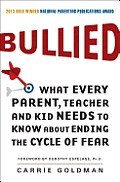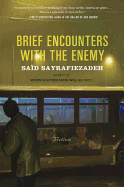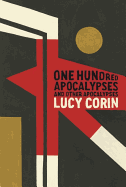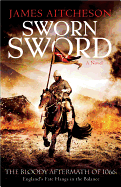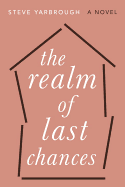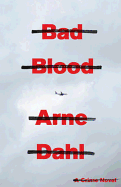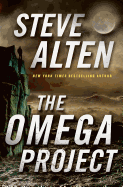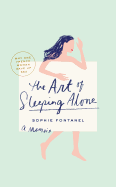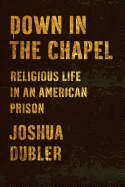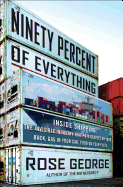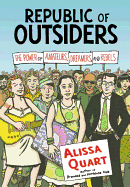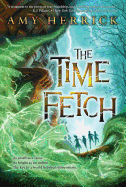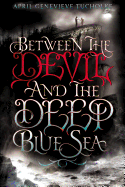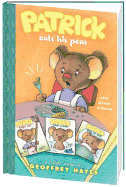 |
| photo: Jonathan Worth |
Cory Doctorow is a science fiction author, activist, journalist and blogger, the co-editor of Boing Boing and the author of, recently, Little Brother and its sequel, Homeland. The paperback edition of Pirate Cinema (Tor Teen) will be released next week. It recently won the Libertarian Science Fiction Society's Prometheus Award.
On your nightstand now:
My bedstand is the worst place to look for books, because it's where they go to die. The real place to look for the stuff I'm reading is on my to-be-read shelf at the office and the overflow pile on the desk, as well as the stuff I'm traveling with (I'm always traveling). I'm presently in Toronto, and I've torn through all of the books I brought with me on the trip except Disney Imagineer Ward Kimball's memoir, Full Steam Ahead. I read about two-thirds of this in manuscript, hoping to give them a cover quote, but it was so unwieldy in manuscript form (giant 11"x17" sheets) that I could only read it at the office, and then only when there were no other projects on (because I needed my whole coffee table to spread it out) that I never got through it.
The number one fitness factor (besides quality) for my completing books for review/blurbs is whether they fit conveniently in my travel bag and can be handily read in one hand while shuffling through monstrous customs queues. Ever since the DHS banned MP3 players in its customs halls, I've lost my several hours/month of podcast time, and converted it to several hours/month in review/blurb reading time.
Takeaway one: America's customs checkpoints are an authoritarian disgrace, and the site of interminable queues that would have shamed Soviet Russia.
Takeaway two: Publicists who send out giant, expensive photocopied manuscripts are wasting their money. Even if you can't get an ARC out of marketing, you can always double-side/double-column on 8.5x11 and staple it up the side to produce an easy reader--120K words in 55 sheets of paper!
Takeaway three: I travel too goddamned much.
Favorite book when you were a child:
I suck at favorites. I was a book-a-day kid. I had 40+ minutes each way to school on the city bus from the age of 9 and chewed through a stack of mass markets that could have reached to the moon and back.
That said, the first book I read to myself was Alice in Wonderland and now I'm married to an Alice, so make of that what you will.
Also: Daniel M. Pinkwater's books. I've never thrown away or given away a Pinkwater, even the ones that are in tatters.
Your top five authors:
I just hate picking top fives. Top five for what purpose? The five I'd most like to have dinner with? The five I'm glad got to write? The five I'd be sure to face out if I ever worked as a bookseller again? The five that I'd take with if I was on a desert island?
About two-thirds of my friends are writers. I've read thousands and thousands of books. I love and cherish books, but I don't have favorites. If I was a "favorites" kind of guy, I'd have written one blog-post and had done with it. Instead, I've written ~50,000 of them.
Five authors? That's like five elements of the periodic table. What use are five authors? My favorite authors are the ones living, dead, read and unread, published and unpublished, who write because they can't stop and because something inside them burns to be outside. That doesn't necessarily mean that I want to read their books, but they are all and every one my favorites.
Book you've faked reading:
I would never fake reading a book. Why would someone fake reading a book? That's like faking what color socks you like. Are there seriously situations in which faking having read a book is a thing? Really? Ew.
Book you are an evangelist for:
First of all, see my "top five" remarks. I compulsively evangelize the stuff I love, because that's the way I'm kinked. Paul Di Filippo once wrote an hilarious post-apocalyptic story in which the Internet had toppled and the world's bloggers were left to wander their cities, and someone runs into me in the financial district in San Francisco, and I'm carrying a leather shoulderbag, from which I produce hundreds of oddments, shoving them in the narrator's face and saying, "Hey, check out this cool thing," which is basically what I do all day long, and have done all my life.
So there's not A book I evangelize, there are whole shelfsful of books I evangelize.
However, there is a slate of books I often recommend to people. For example, anytime someone talks to me about security, I shove a copy of Bruce Schneier's Beyond Fear in their hands. Anyone who wants to understand hacking, I give a copy of Bunnie Huang's Hacking the X-Box. I believe every human alive would benefit from wide exposure to Daniel Pinkwater, especially his triumphant The Neddiad/The Yggyssey/Adventures of a Cat-Whiskered Girl trilogy. Jo Walton's Among Others is an understated triumph that defies description, while anyone who wants to understand how good people do evil must read her Farthing/Ha'penny books.
Book you've bought for the cover:
I bought an extra set of the George Orwell Animal Farm and 1984 books with the Shepard Fairey covers. I have about 10 sets of Orwells around the house and office, but those were pretty spesh.
Book that changed your life:
My life has been changed by so MANY books (see comments about favorites), that this is a pretty much impossible question to answer well.
It's a bad month where my life ISN'T changed by a book. Organizationally, things really changed for me when I read Getting Things Done. Holy moly, did that click for me.
But emotionally, I've been transformed in so many ways by books, it's a hopeless task to try to catalogue them all. However, whenever I get really down, I reread Kim Stanley Robinson's Pacific Edge. There is no more surefire cure for the blues.
Favorite line from a book:
"Copyright 2013. Some rights reserved under a Creative Commons BY-NC 3.0 license."
Book you most want to read again for the first time:
Alice in Wonderland, the book that I started with. Because that wasn't just a book I read for the first time, it was the first time I read a book. The feeling of excitement from that discovery was so intense, it would be amazing to revisit it.
Book Brahmin: Cory Doctorow
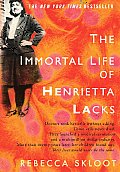 More importantly, Skloot's work trained long-delayed focus on the amazing legacy of an African-American tobacco sharecropper's daughter, who had tumor cells removed without her consent by doctors in a Baltimore hospital shortly before her death at the age of 31 from cervical cancer in 1951. Billions of these HeLa cells have since been used in thousands of studies, yielding insights into cell biology, vaccines, in vitro fertilization and cancer.
More importantly, Skloot's work trained long-delayed focus on the amazing legacy of an African-American tobacco sharecropper's daughter, who had tumor cells removed without her consent by doctors in a Baltimore hospital shortly before her death at the age of 31 from cervical cancer in 1951. Billions of these HeLa cells have since been used in thousands of studies, yielding insights into cell biology, vaccines, in vitro fertilization and cancer.



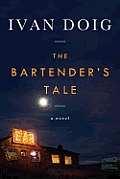 The Bartender's Tale
The Bartender's Tale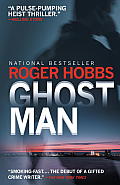
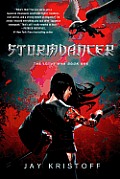
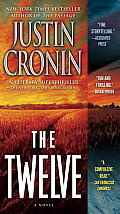
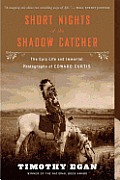 Short Nights of the Shadow Catcher: The Epic Life and Immortal Photographs of Edward Curtis
Short Nights of the Shadow Catcher: The Epic Life and Immortal Photographs of Edward Curtis